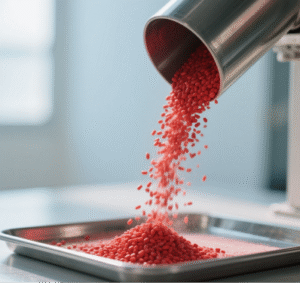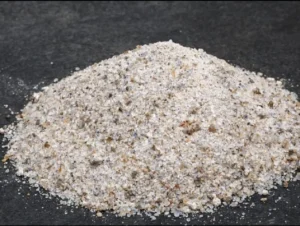In a significant ruling, the China National Intellectual Property Administration (CNIPA) has firmly upheld the validity of two crucial patents held by Kumiai Chemical Industry Co., Ltd., a global leader in agrochemical research and development. This ruling underscores China’s growing dedication to safeguarding intellectual property and promoting innovation-driven growth. The decisions, issued following challenges from two Chinese companies based in Anhui and Hangzhou, respectively, mark a significant victory for Kumiai and a strong signal of China’s resolve to safeguard intellectual property rights in the chemical and agricultural sectors.
The patents under review relate to the “Preparation Method of 5-Alkoxy-4-Hydroxymethyl Pyrazole Compounds,” a specialized intermediate compound essential for the production of Kumiai’s flagship herbicide, Proxasulfone. Proxasulfone has gained widespread adoption among farmers worldwide due to its effective weed control and environmental compatibility, making it a staple of modern agricultural practices. The challenging companies alleged that the patents lacked novelty and inventiveness, seeking to invalidate them and potentially open the door to cheaper generic alternatives. However, an exhaustive review by the CNIPA has concluded that Kumiai’s patents meet all legal requirements, affirming their uniqueness, technological advancement, and practical value.
Kumiai Chemical has a heritage spanning over seven decades in the field of herbicide innovation. The company has built a reputation for cutting-edge solutions that balance efficacy and sustainability. The company’s extensive intellectual property portfolio, which includes over 200 patents worldwide, including numerous Chinese patents that protect Proxasulfone’s core chemistry and manufacturing processes, serves as a key driver of its global market leadership. As part of its proactive IP strategy, Kumiai has also initiated legal proceedings against the accused entities, with cases currently pending in the Hefei Intermediate People’s Court and the Hangzhou Intermediate People’s Court. These legal actions aim to obtain damages and injunctions to halt the alleged unauthorized production and sales of Proxasulfone-like products.
Industry Impact and Policy Context
This ruling coincides with China’s escalating efforts to establish itself as a dominant global IP entity. In recent years, the country has overhauled its IP laws, strengthened enforcement mechanisms, and actively engaged in international IP agreements. The CNIPA’s decision aligns with the goals outlined in China’s “14th Five-Year Plan,” which prioritizes IP protection as a catalyst for technological self-reliance and high-quality economic development. Analysts suggest that the Kumiai case could set a precedent for IP litigation in the highly competitive agrochemical industry, encouraging domestic and foreign innovators to invest in R&D with confidence.
Dr. Li Wei, a patent law expert at Tsinghua University’s Intellectual Property Research Center, emphasizes the significance of patents in the field, stating, “Kumiai’s patents are not just legal documents; they represent decades of dedicated research and millions of dollars in investment.” “CNIPA’s ruling sends a clear message: China is committed to incentivizing authentic innovation and deterring imitation. This will attract more high-tech enterprises to establish R&D centers in the country.”
Global Repercussions
Beyond China, the decision could influence the global agrochemical market, where intellectual property disputes often shape competitive dynamics. Proxasulfone’s market presence is driven by its patented technology, and Kumiai’s success in protecting its intellectual property further solidifies the herbicide’s reputation as a reliable solution for farmers globally. Additionally, as multinational corporations closely monitor China’s IP enforcement track record, the CNIPA’s ruling may alleviate concerns about intellectual property theft, potentially boosting foreign direct investment in innovation-intensive sectors.
Kumiai’s Response and Future Outlook
A representative from Kumiai Chemical emphasized the company’s commitment to safeguarding its intellectual property. “Intellectual property is the lifeblood of our industry. By upholding our patents, the CNIPA has validated our scientific achievements and the hard work of our researchers. Kumiai will continue to pursue all legal remedies to ensure that infringers are held accountable, and we remain confident in China’s IP system to deliver fair outcomes.” The company has also committed to expanding its R&D initiatives, exploring new applications for pyrazole compounds and sustainable agriculture technologies.
Legal Landscape and Next Steps
The pending infringement lawsuits against the Anhui and Hangzhou companies are expected to progress through China’s specialized IP courts, which have demonstrated increasing efficiency and professionalism in recent years. These trials are expected to further clarify IP boundaries in the agrochemical sector and potentially establish new jurisprudential standards. Meanwhile, Kumiai’s legal team is reportedly preparing additional evidence to demonstrate the defendants’ use of its patented processes, aiming for substantial compensation and market restoration.







